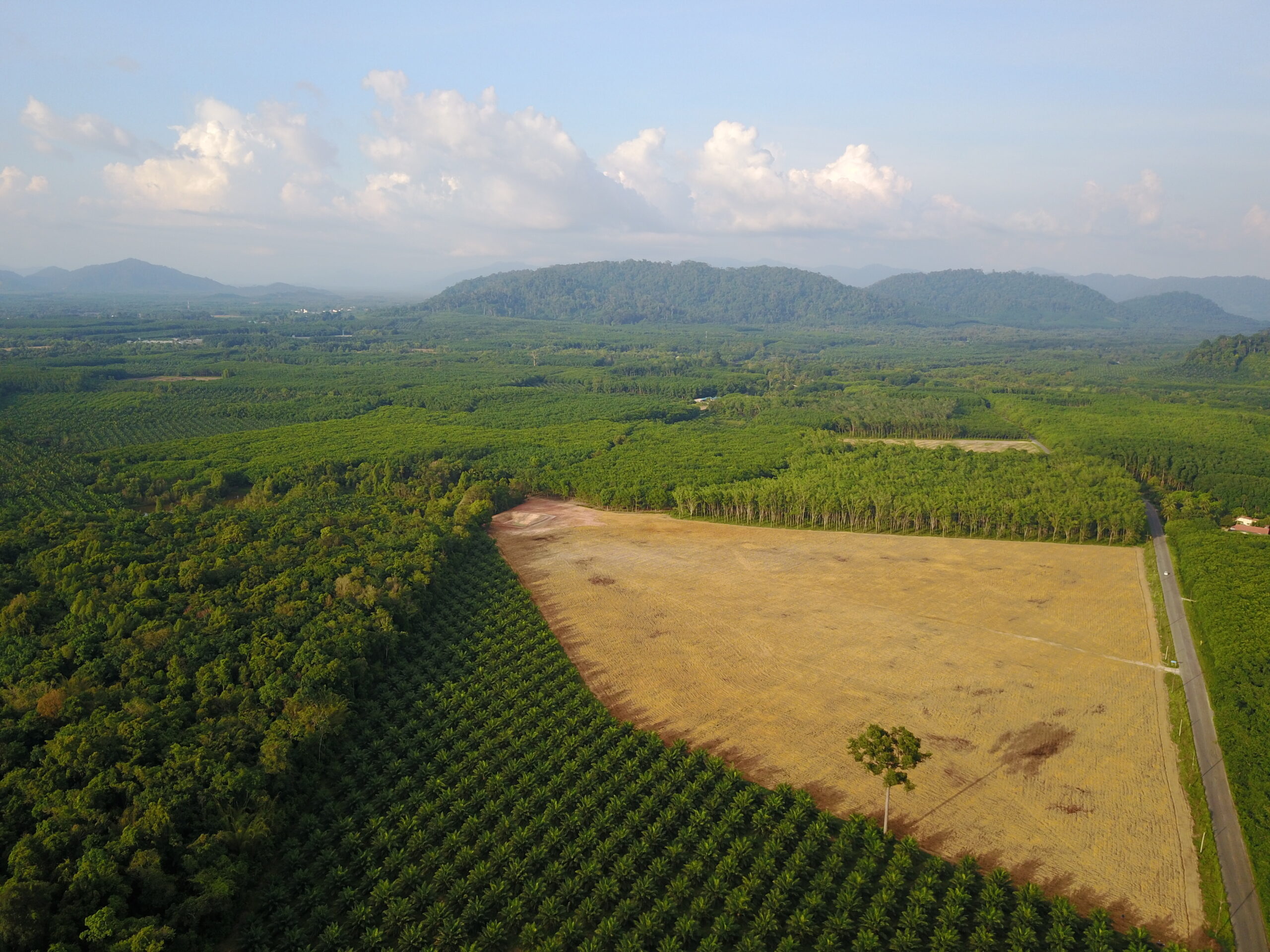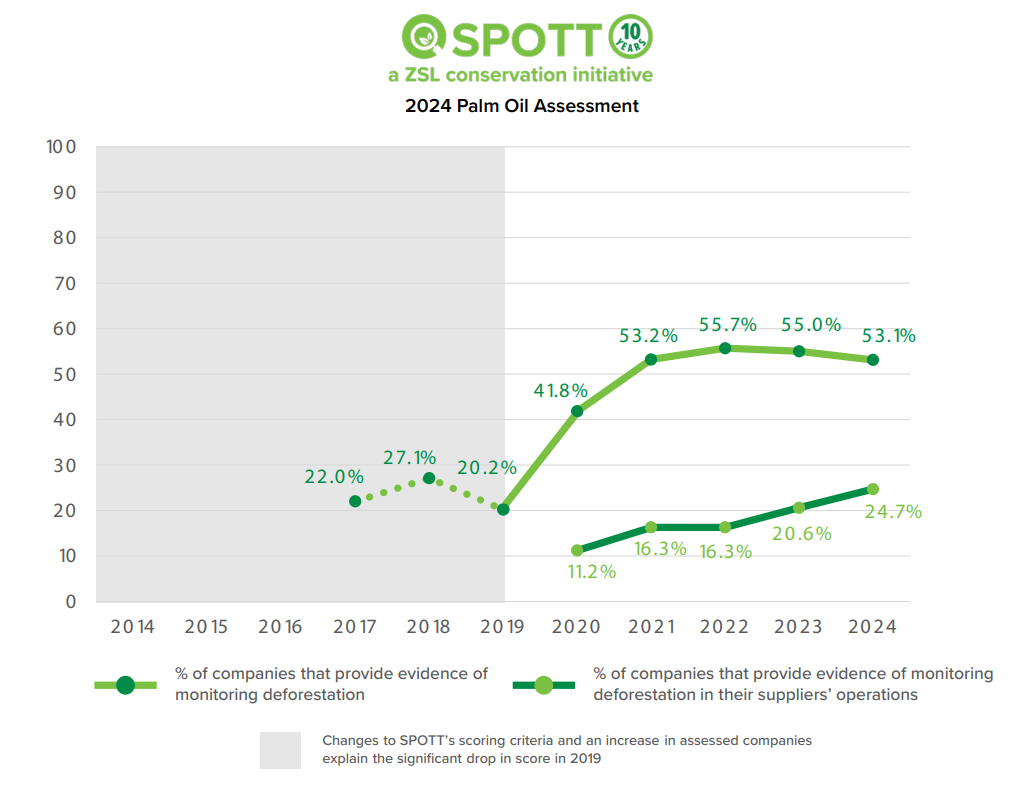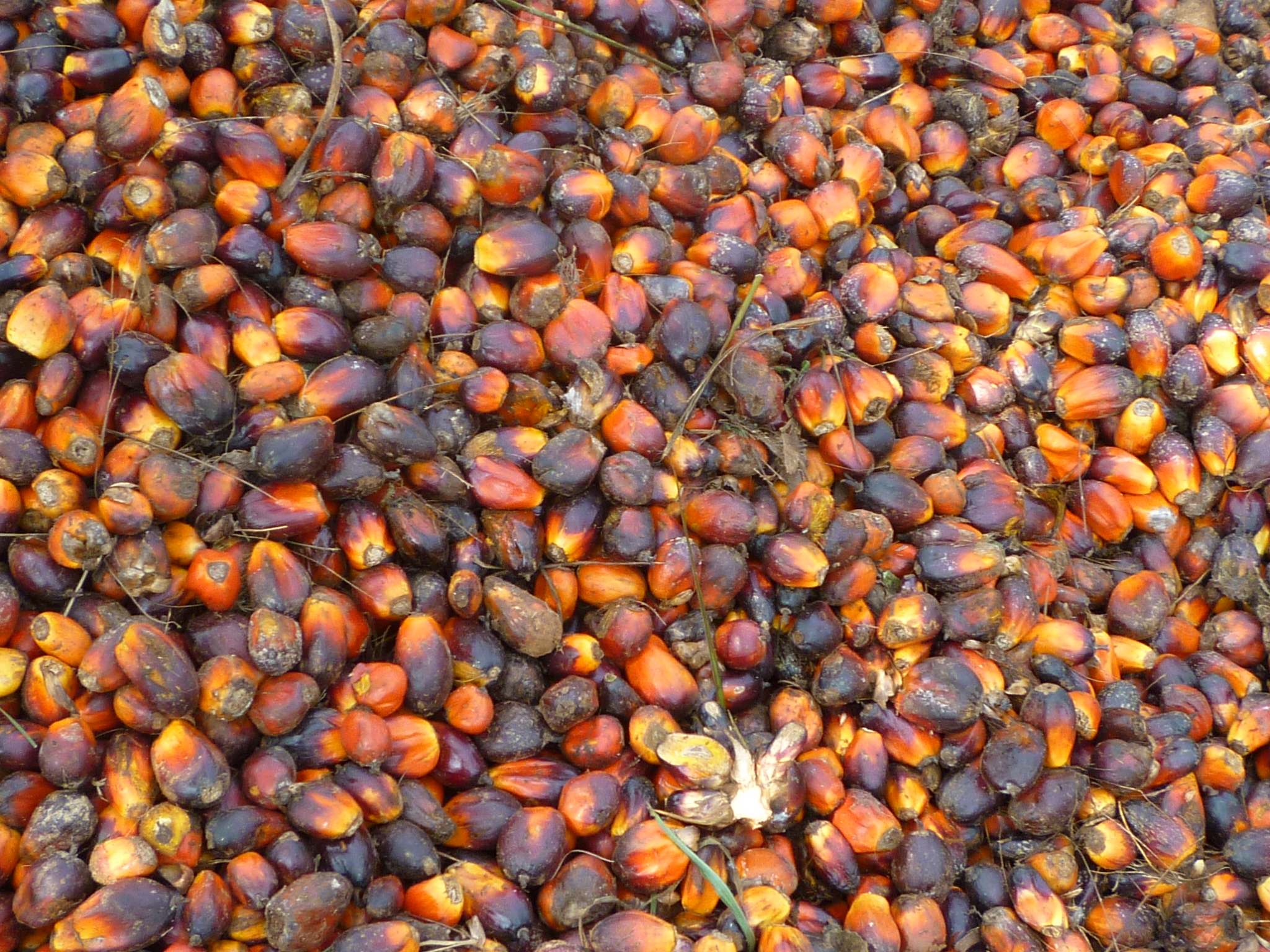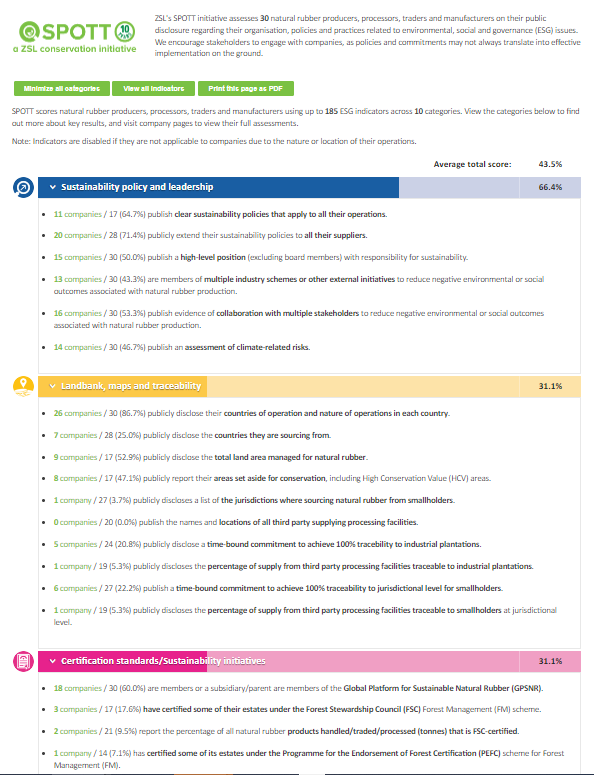Decade of analysis reveals need to ramp up efforts as deadline to restore world’s forests approaches
The palm oil sector has made significant advances in commitments to zero deforestation but evidence of implementation is widely lacking, reveals latest assessment from conservation charity ZSL.
Published today (7 November 2024), this year’s ZSL SPOTT palm oil assessment marks a decade of evaluating progress in the industry’s environmental, social, and governance (ESG) public disclosures. While it reveals steady progress in companies adopting zero deforestation commitments, crucial gaps in implementation threaten progress towards the UN COP26 global goal of ending and reversing deforestation by 2030.
The team behind the report is urging the palm oil sector to urgently enhance transparency and accountability – including supply chain industry giants such as Ferrero, Mars and Nestle – in order to reach this vital goal that will help humanity simultaneously address the biodiversity and climate crises.
For decades, unsustainable expansion of palm oil plantations have decimated biodiversity in tropical countries, including Indonesia and Malaysia – the world’s largest palm oil producers. Following a greater need for transparency and eliminating deforestation in the industry, SPOTT began to track companies’ deforestation policies and practices in 2014, initially tracking companies’ various approaches to addressing deforestation*. By 2017, SPOTT refined this to focus on clear zero deforestation commitments – at that time, only 29 out of 50 companies had adopted such pledges. Today, 51 out of 81 assessed companies have adopted zero deforestation commitments.

Imogen Fanning, Sustainable Business Project Analyst at ZSL who led the assessment said: “As we work to protect the world’s forests, it’s encouraging that more than half of assessed companies provide evidence of monitoring deforestation in their operations – a 31% increase since this indicator was introduced – however there are still persistent gaps that continue to threaten global goals. Only 24.74% extend this monitoring to their suppliers, highlighting the urgent need for a comprehensive approach that holds all parts of the supply chain accountable and ensures commitments translate into action on the ground.”
ZSL calls for transparent public reporting on how companies are eliminating deforestation, through initiatives like satellite monitoring, field audits and community engagement. Investors and buyers must also share the responsibility by actively engaging with companies, ensuring their commitments are implemented, and aligning with global sustainability standards and regulations, such as RSPO certification and the upcoming EUDR.

Palm oil plantation
Imogen explained: “From shampoo to cooking oil, palm oil is used across the globe every single day – yet its production has driven extensive deforestation, particularly in biodiverse tropical regions. According to FAO data, from 1970 to 2020, palm oil cultivation areas increased almost tenfold, from 3 million to nearly 30 million hectares – putting immense pressure on ecosystems, wildlife, and communities alike.”
ZSL’s Living Planet Index, published last month in WWF’s Living Planet Report 2024, highlighted how habitat loss – including the large scale-clearing of tropical forests for agriculture and forestry – is a major driver behind a 73% average decline in monitored wildlife populations over the past 50 years, highlighting the scale of this issue and underscoring the need for transparent action across supply chains.
As global demand for palm oil grows – with global production growing by approximately 24.3% between 2014 and 2023** – the challenge remains to balance economic growth with sustainable practices that protect forests and the communities and species that rely on them. SPOTT has tracked the world’s largest palm oil companies over the past decade to enhance ESG transparency and has directly engaging with the industry to strengthen ESG policy and practices. This year alone, 50% of companies have improved their disclosure scores following our engagement.
Imogen highlighted the important role investors and buyers must play in tackling the issue: “Transparency must extend beyond palm oil producers, processors and traders, ensuring that companies sourcing palm oil products also have clear visibility into their supply chains. Our media monitor has identified food and beverage giants like Mars, Ferrero and Nestle are sourcing from companies that have been linked to alleged deforestation events including: AAK AB, Bunge, Cargill, Louis Dreyfus Company, Musim Mas, Olam International, Sime Darby, and Wilmar. These brands wield considerable influence in shaping the industry, and we commend their efforts in disclosing their suppliers and encourage them to keep pushing for change on the ground through scrutinising supplier practices and providing financial and technical support for positive change.”
SPOTT’s media monitor*** reflects this ongoing scrutiny, capturing 749 negative media articles on deforestation and biodiversity over the past decade – the highest across all ESG categories. This sustained media focus, even as reports decline, is a clear reminder: the pressure on companies to meet their zero deforestation commitments is far from over.

Imogen added: “With only five years left to meet the global goal of ending deforestation, the urgency for action has never been greater. The palm oil industry has shown the huge efforts that can be made to drive sustainable agricultural production, but actors across the value chain must come together to push the industry forward and translate all commitments into robust, effective actions.
“Making deforestation-free, sustainable palm oil the industry standard demands a strong, collaborative push from all stakeholders. Companies must regularly conduct deforestation monitoring throughout their supply chains, while buyers should lead with transparency, strict sourcing policies and active support for suppliers, and investors must adopt bold deforestation policies and proactively engage companies lagging in sustainability practices.”
ZSL believes nature can recover, and that conservation is most effective when driven by science. With both COP16 and COP29 this year putting a spotlight on nature, we call for science to guide all global decisions on environment and biodiversity and build a healthier future for wildlife, people and the planet. Find out more and support ZSL’s world-leading, collaborative science and conservation work at www.zsl.org
* SPOTT’s zero deforestation commitment indicator was introduced in 2017 to provide a more rigorous assessment of companies’ commitments to eliminating deforestation. Prior to this, from 2014 when the assessment began, SPOTT tracked whether companies had a “publicly available statement addressing deforestation resulting from its operations,” which did not necessarily reflect a formal, actionable zero deforestation commitment and could imply future intentions rather than current accountability.
** USDA Foreign Agricultural Service: Palm Oil | USDA Foreign Agricultural Service
*** SPOTT tracks media coverage across multiple ESG themes, including deforestation and biodiversity, to provide stakeholders with insights into the public and media perception of companies’ on the ground actions.

Oil palm fruits by Sophia Gnych

